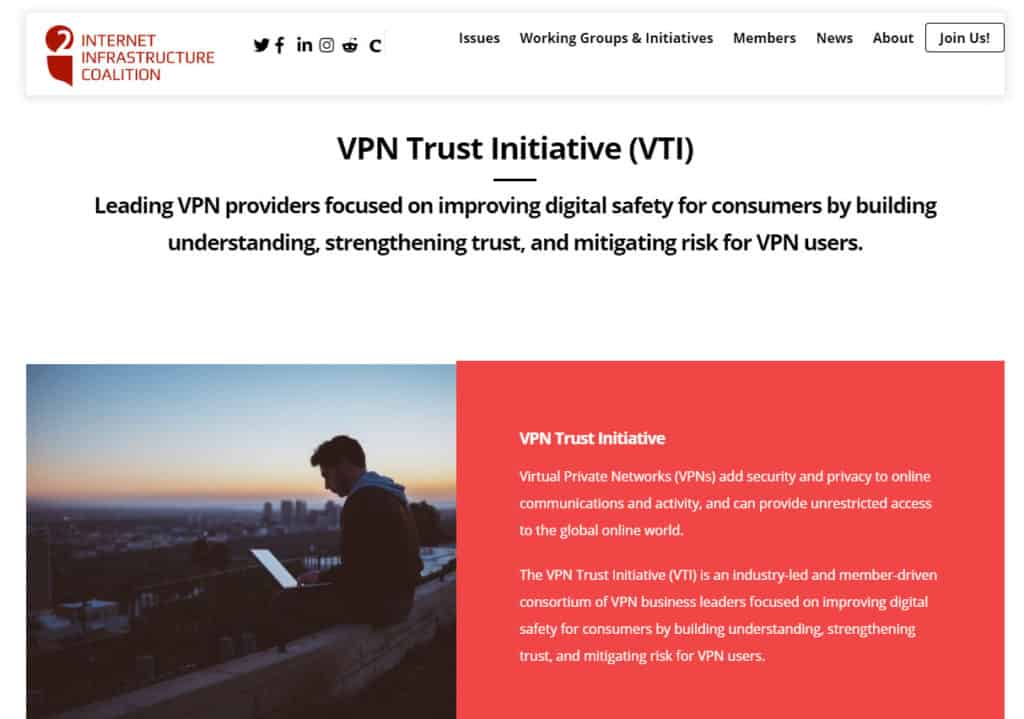VPNs are often touted as a means to improve online security and protect user privacy on the web. Although VPNs do offer these benefits, you don’t have to dig too far to find people who don’t trust them. VPN skeptics allege that VPNs don’t offer sufficient protection, or that handing your data over to a VPN provider is just as risky as handing it over to your ISP, big tech, and data brokers.
In some cases, their arguments are warranted. Many VPNs lack adequate security, others fail to live up to their privacy policies, and a few are downright malicious. In truth, there’s little stopping a VPN provider from stealing your data without your knowledge.
VPN companies depend on user trust, and even the most reputable VPNs can struggle to build it. After all, VPNs that live up to expectations have little to show for it; how can a VPN prove it doesn’t engage in logging user activity, for example? Often the only evidence of trustworthiness is the absence of criticism and scandal. Even the few VPNs that have commissioned third-party security audits draw skepticism.
To improve consumer confidence in VPNs, several of the biggest names in the VPN industry banded together to create the VPN Trust Initiative. In conjunction with the i2Coalition, the initiative focuses on advocacy, education, and awareness among three key groups: legislators, technologists, and end-users.
So far, five big players encompassing 10 VPNs have signed on:
- ExpressVPN
- NordVPN
- Golden Frog (VyprVPN)
- Surfshark
- NetProtect (encrypt.me, WLVPN, IPVanish, StrongVPN, OverPlay, SaferVPN)
“I’m confident that other providers will agree and will want to join us in making our collective voice stronger,” says Harold Li, vice president of ExpressVPN.
Technical standards and best practices
Although no official requirements have been set yet, one of the most important tasks of the initiative will be to set and maintain industry best practices and technical standards. Logging policies and encryption, for example, will likely need to abide by the i2Coalition’s policies and guidelines.
“i2Coalition acts as an independent stakeholder to ensure the success of this initiative and has a strong track record of bringing together a wide range of players to be a voice and advocate for the internet infrastructure industry as a whole,” Li explains.
The i2Coalition operates several working groups and initiatives for cloud providers, data centers, domain registrars, and registries. VPNs are the most recent addition to the list.
Currently, there are no other similar industry groups in the VPN space, nor are there official regulators or watchdogs. If the VPN Trust Initiative succeeds, it could bring more VPNs up to par with what end users expect in terms of privacy and security.
Lobbying and public education
The VPN Trust Initiative also acts as a lobbying effort that gives members a collective voice to approach lawmakers.
“We’re working with the i2Coalition because of their years of experience in advocating for policies and building awareness to help keep the internet open as an engine for growth and innovation,” Li says. “For example, they have been strong advocates for the importance of encryption, including advocating for a U.S. Congressional commission on the matter.”
As authorities increase pressure on VPNs to give law enforcement back doors, hand over user records and weaken encryption, lobbying could play an important role in the future of VPNs.
“We feel the industry is evolving at a fast pace,” says Jeremy Palmer, vice president of marketing at IPVanish. “We think it’s important to take a proactive approach with standards and legislation, so we can help shape and influence the future of our industry, rather than react.”
Public education is another goal of the initiative. Members will cooperate to promote VPNs and their benefits to the public.
Cooperation among competitors
The current signatories of the initiative say they are confident more VPNs will join their cause.
“Teaming up with other reputable providers and the i2Coalition makes a lot of sense for any company in the industry,” Palmer says.
The initiative’s success depends on industry cooperation, so the goal is not to be a gatekeeper for an exclusive club of top VPNs. The i2Coalition acts as an independent party to bring competitors of all sizes together.
“i2Coalition has a long track record of success in the hosting and cloud space. Their members range from single-operator entrepreneurs to the world’s largest hosting companies,” Palmer says. “We have put our trust in them to oversee the VPN Trust Initiative based on this track record.”








